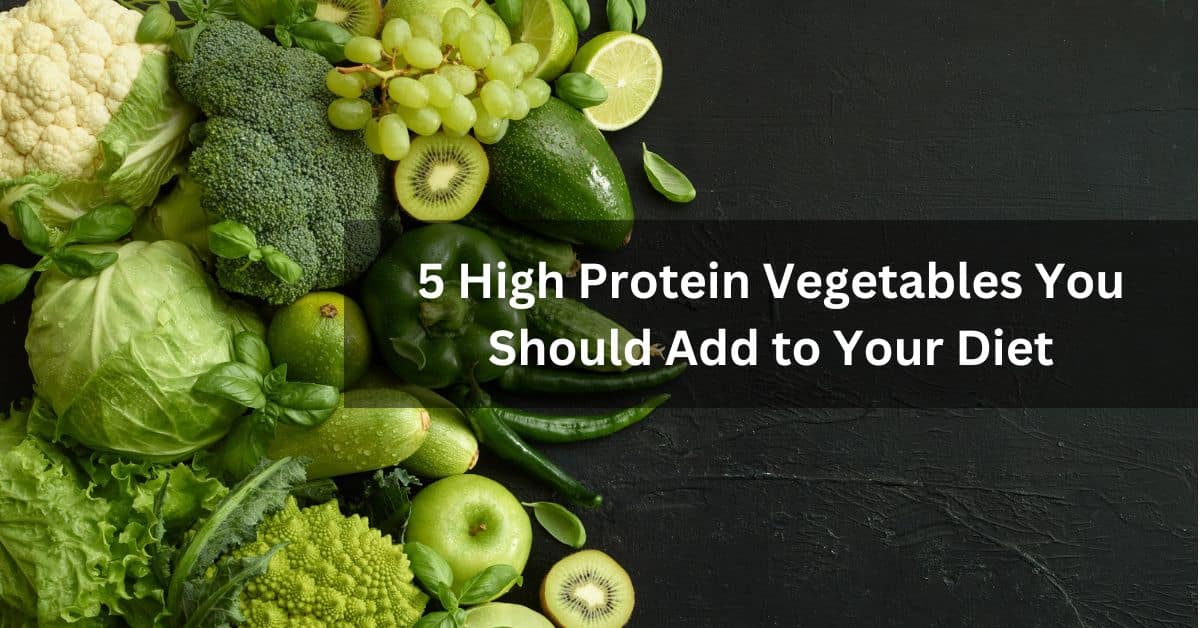When we think about protein-rich foods, vegetables often don’t come to mind as quickly as meats, dairy, or legumes. However, several vegetables are surprisingly rich in protein, making them a fantastic addition to any diet, especially for vegetarians, vegans, or anyone looking to eat healthier. These high-protein vegetables can help you meet your nutritional needs while also providing essential vitamins, minerals, and fiber. Let’s dive into five of these protein-packed vegetables that you should consider adding to your meals.
Spinach
Spinach is a versatile green leafy vegetable that is as rich in protein as it is in other nutrients. A cup of cooked spinach provides about 5 grams of protein, along with a substantial dose of vitamins A, C, and K, magnesium, iron, and folate. This nutrient-dense vegetable is not only good for your muscles but also promotes healthy skin, boosts immune function, and supports bone health.
How to Add Spinach to Your Diet: Spinach can be easily incorporated into your diet in a variety of ways. Add it to your morning smoothie for a green boost, toss it into salads, or sauté it with garlic as a side dish. You can also mix spinach into soups, stews, or casseroles to enhance their nutritional value.
Broccoli
Broccoli is another powerhouse when it comes to high-protein vegetables. A cup of chopped broccoli provides about 3 grams of protein and is loaded with vitamin C, vitamin K, fiber, and numerous antioxidants. These nutrients make broccoli a superfood that supports heart health, improves digestion, and helps fight inflammation.
How to Add Broccoli to Your Diet: Broccoli can be enjoyed steamed, roasted, or even raw. Try adding it to your stir-fries, salads, or pasta dishes. Roasting broccoli with a little olive oil, garlic, and lemon juice makes for a tasty side dish. You can also blend steamed broccoli into soups for a creamy, nutritious meal.
Brussels Sprouts
Brussels sprouts may not be everyone’s favorite vegetable, but they are certainly worth reconsidering due to their high protein content. One cup of cooked Brussels sprouts contains nearly 4 grams of protein. These mini cabbages are also packed with fiber, vitamin C, and several other nutrients that contribute to overall health.
How to Add Brussels Sprouts to Your Diet: Roasting Brussels sprouts with a drizzle of olive oil, salt, and pepper brings out their natural sweetness and creates a delicious, crispy side dish. You can also shred them and add them to salads or sauté them with garlic and balsamic vinegar for a tangy flavor.
Peas
Peas are a high-protein vegetable that often gets overlooked. A cup of peas contains about 8 grams of protein, making them one of the most protein-dense vegetables you can add to your diet. Besides being rich in protein, peas are a good source of vitamins A, C, and K, as well as folate and fiber, which can help with digestion and overall gut health.
How to Add Peas to Your Diet: Peas are incredibly versatile and can be added to a variety of dishes. You can mix them into rice, pasta, or quinoa for added texture and nutrition. Peas also work well in soups, stews, and salads. For a quick and easy side dish, simply steam peas and toss them with a bit of butter, salt, and pepper.
Asparagus
Asparagus is another vegetable that offers a surprising amount of protein, with about 4 grams per cup of cooked spears. It’s also rich in fiber, folate, and vitamins A, C, and K. Asparagus is known for its diuretic properties, which can help reduce bloating and support kidney health.
How to Add Asparagus to Your Diet: Asparagus can be grilled, roasted, or steamed and makes a delicious addition to any meal. Try adding grilled asparagus to salads, tossing roasted spears with a squeeze of lemon juice, or mixing steamed asparagus into a frittata or omelet for a protein-packed breakfast.
Conclusion
Incorporating high-protein vegetables into your diet is an easy and effective way to boost your overall protein intake while also benefiting from a wide range of other essential nutrients. Spinach, broccoli, Brussels sprouts, peas, and asparagus are just a few of the many vegetables that can help you meet your protein needs. Whether you’re vegetarian, vegan, or simply looking to add more plant-based foods to your diet, these vegetables are a fantastic option. So, next time you plan your meals, remember to include these nutrient-dense veggies to keep your body strong and healthy.

